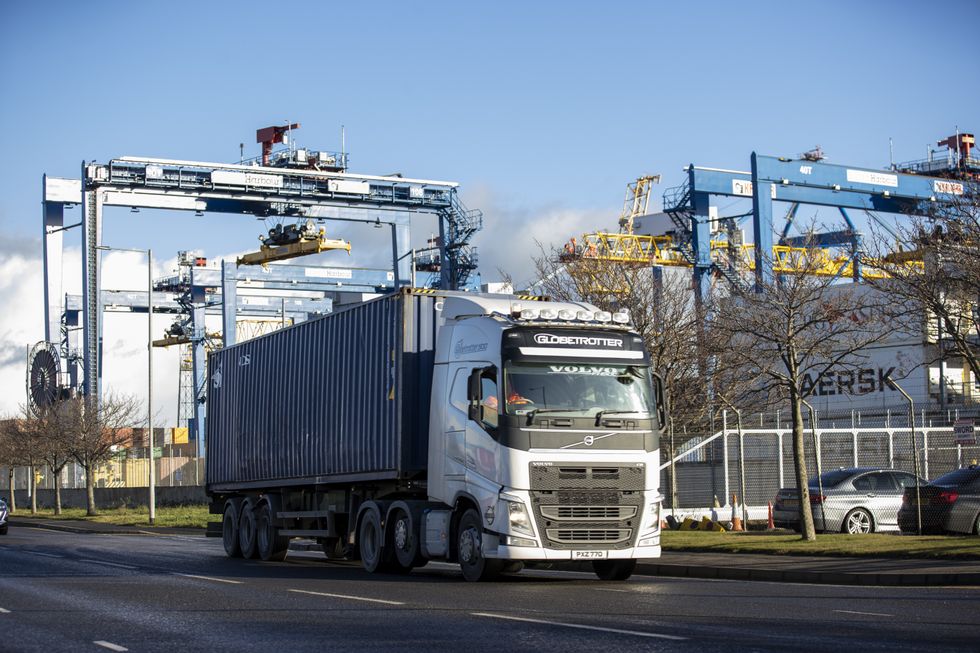New driving law changes launching today will bring in tougher safety measures for motorists

A grace period will be in operation for the next six months
Don't Miss
Most Read
Motorists have been warned of new safety rules in London which have come into force today bringing in tougher standards for vehicles.
The new measures introduced by Transport for London (TfL) come as the previous safety requirements for HGV drivers expired on October 27.
To travel in London, HGV drivers must have a Direct Vision Standard and HGV Safety Permit Scheme or they could receive a hefty fine.
The DVS measures how much a driver can see directly through their cab windows with the amount expressed as a star rating from zero (limited) to five (good).
Do you have a story you'd like to share? Get in touch by emailing motoring@gbnews.uk

TfL offers six-month grace period until May 4, 2025, for drivers to obtain a permit
| PAThe move aims to reduce the number of incidents caused by poor vision on London roads. The star rating is fixed and dependent on the vehicle design, as it indicates the level of risk to road users such as people walking and cycling.
However, drivers can no longer receive an HGV safety permit under the previous Safe System conditions and will need to apply for a permit with Progressive Safe System conditions for all HGVs regardless of the star rating.
Ratings are required for all lorries over 12 tonnes entering or operating in Greater London, failure to comply could result in a £550 fine.
The new safety permits are part of the Mayor of London's Vision Zero plan to eliminate all deaths and serious injuries on London's transport network.
TfL said it offered a six-month grace period until May 4, 2025, for operators who needed more time to install the new safety measures required.
The grace period was open for applications inclusive of October 27. Vehicles registered for this are exempt from receiving a PCN.
Christina Calderato, TfL’s director of strategy, said: “Since we introduced London’s pioneering Direct Vision Standard, we have seen a significant reduction in fatal collisions where vision is a factor in the capital.
“However, there is much more we need to do, to achieve our goal of eradicating deaths and serious injuries from London’s transport network.”
“It’s vital that all vehicles using London’s roads have safety at the forefront of their design and we're excited that from today HGVs operating in the capital will become even safer."
The HGV safety permit scheme operates 24 hours a day and seven days a week within the Greater London area and is free to purchase for motorists.
Andrew Cox, managing director of FM Conway, told Fleet News that the latest Progressive Safe System update makes sure the largest vehicles operating on the network “can do so safely, with driver and technology working in tandem to pre-emptively predict and avoid incidents”.
A small number of vehicles are entitled to a full or partial exemption from the HGV Safety Permit Scheme, according to TfL. These include specialist construction vehicles built for mainly off-road use like telehandlers and mobile cranes.
LATEST DEVELOPMENTS:

HGV drivers must have a permit to travel in London
| GETTYThe transport authority detailed: “If your vehicle is registered in the UK and is clearly defined as fully exempt, it will automatically be exempt, and you don't need to register it with us.”










